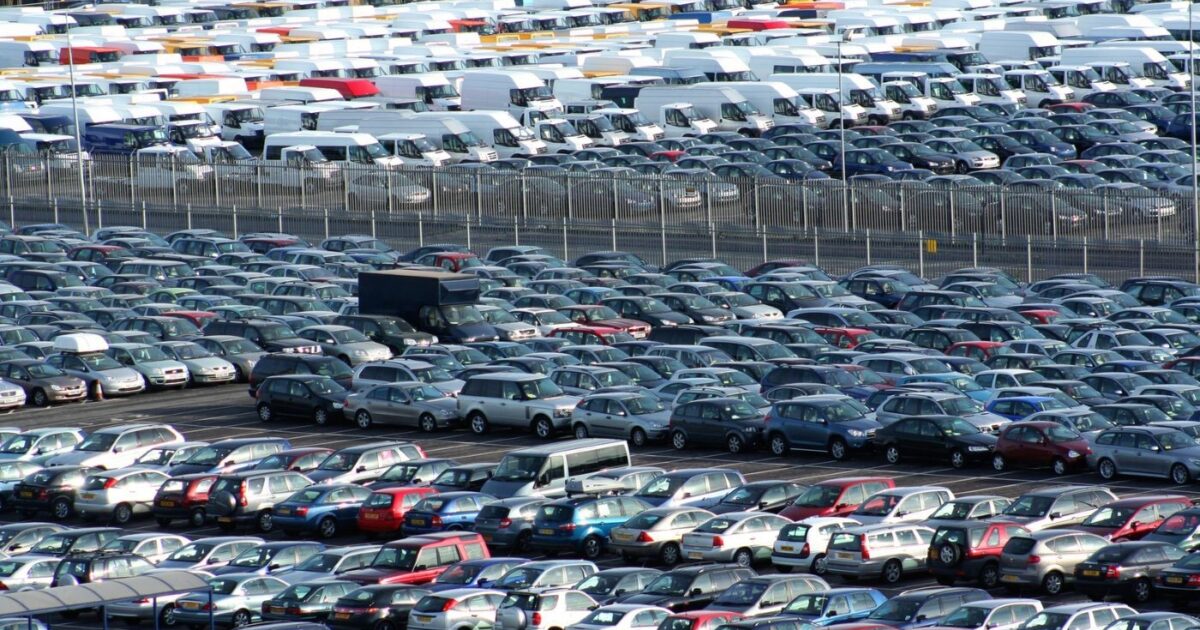
Corporate fleet electrification
In the EU, six out of ten new car registrations are corporate. You might think this was a perfect opportunity to easily sell more EV's. Big fleets and bulk deals. But apparently not.
In the EU, six out of ten new car registrations are corporate. You might think this was a perfect opportunity to easily sell more EV's. Big fleets and bulk deals. And yet, a smaller percentage of new corporate cars are electric than in the private market. Not by much, but enough of a gap.
Apparently the corporate car market is responsible for the overwhelming majority of car sales of five of Europe’s main car manufacturers (Volvo, Volkswagen, BMW, Stellantis and Mercedes-Benz). 70% of VW’s car sales in the EU are corporate cars.
But, does this tell the full story? Or is it half of the picture? Because until we have the full picture, working on solutions is hard.
Which is why a report from T&E on the European corporate car market Caught Our Eye.
This is a What Caught Our Eye story - highlighting reports, research and commentary at the interface of finance and sustainability. Things we think you should be reading, and pointing out the less obvious implications. All from a finance perspective.
It's free to become a member ... just click on the link at the bottom of this blog or the subscribe button. Members get a summary of our weekly posts, including What Caught Our Eye and Sunday Brunch, delivered straight to your inbox. Never miss another blog post !
Heavy, dirty, tardy: Company car electrification lagging behind
The latest report from T&E on the corporate car market in Europe was interesting.
Let's look at the headlines. According to the report, battery electric (EV's) vehicles accounting for 14.1% of corporate sales, whilst the private market was at 15.6%. So corporate registrations were around 10% lower.
And because they drive twice as many kilometers as private vehicles, they account for 74% of all new car emissions. And the corporate car share of the total car market used to only be 50%, now it's 60%. It's growing and fast.

In some markets, such as Portugal and Germany, over 2/3 of new registrations are corporate cars. Plus, corporate registrations of internal combustion engine (ICE) cars have a much higher CO2 intensity than those registered by private individuals, mostly due to the fact that larger, heavier, and more polluting cars are registered in the corporate channel.
And, according to the report, corporate cars benefit from generous tax advantages through VAT deductions and depreciation write-offs. Their tax benefits apparently amount to a massive €26 billion per year. This figure increases if other tax advantages such as benefit-in-kind are taken into account.
This doesn't paint a good picture. But let's dig a bit deeper.
Starting with what is a corporate car? This was the definition used in the first of these reports back in 2020.

When a car is bought, it is registered under the buyer’s name: it is labeled as a private registration when an individual buys the vehicle, and as a corporate registration if it’s a company that buys it.
A corporate car is hence a car that is owned by a company or other organisation, not an individual.
Ok, so despite the title of the report, these are not company car's in the sense that you or I might mean. I think of a company car as being one that is purchased or leased for someone to use for work, or as a perk. Not a car that you or I might buy on some sort of finance deal.
The report seems to be about corporate cars - so cars owned by companies, including apparently leasing companies.
How do leasing companies fit into the new car eco-system in Europe? As the report says:
Purchasing a car outright is no longer the norm in Europe. Today, most new cars are acquired through a leasing company. This could be a monthly 'rental' for a fixed term, or a financed purchase with the right to return the car to the lease company.
And how big are the lease companies? As it turns out, very big.
Again quoting the report:
The rapidly growing leasing sector now commands a 50% market share for new car purchases and is forecasted to reach nearly 70% by 2030. In the corporate market this share is even more important, with leasing accounting for 65% of corporate registrations in France, while in the Netherlands it accounts for 71%.
And this market is dominated by some big names. The seven largest leasing companies- Volkswagen Financial Services, Mobilize Financial Services, Ayvens (owned by Societe Generale), Arval (owned by BNP Paribas), Leasys, Alphabet, and Athlon - oversee an estimated fleet of 9.3 million cars. They make up around 1 in 3 of all new cars sold, and 60% of all corporate new car registrations.
I don't know if you have looked at buying a new car recently, but if you have you will know that almost the first thing they offer you is a lease deal. The reason for this is simple, it's a profitable business. And it eases the sale. You as the buyer don't 'think about' the upfront price, you just 'see' the monthly lease amount. And that looks very affordable.
So perhaps it's not surprising that corporate registered cars are growing as a % of total new car sales. And maybe the growth is just representing the cars that people want to own, rather than a deliberate plan on the part of the lease company not to buy EV's?
The second hand market is important
But there is also a really important point buried in the report. Corporate cars have a shorter ownership period, and so they provide a higher turnover of vehicles onto the second-hand market. And the second-hand market for EV's is important. It's where most people buy a car, so having a good supply of nearly new EV's would be helpful. And a liquid second hand market helps the lease companies better estimate the end of lease value of the EV, meaning they can potentially offer better financial terms.
So maybe the lease market does matter, just in a different way from the one that the report implies.

Please read: important legal stuff.


